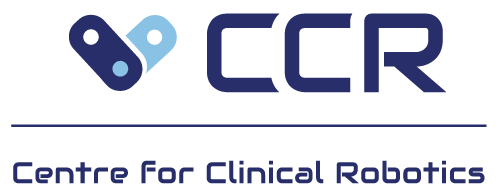FibroBot
Fatty liver disease will be one of the world's major health challenges in the future. Today, the disease is often diagnosed and treated too late in relation to limiting complications and reducing hospitalisations, as well as reducing the risk of premature death.
PROJECT PERIOD
Start: April 2022
End: December 2022
Many of the complications and deaths that occur due to the disease can be prevented with more accurate diagnosis, more effective monitoring of the disease and effective treatment at the right time.
Therefore, this FibroBot project wanted to explore the use of robotics and artificial intelligence for the development of a better diagnostic and clinical tool for the treatment of fatty liver disease.
AIM
One of the best diagnostic tests in the field is Fibroscan, a probe for measuring liver stiffness (scar tissue in the liver). The probe measures the level of scar tissue in the liver with ultrasound and is thus a non-invasive diagnostic tool.
The aim of this project was to develop a prototype that would be able to automatically scan for scar tissue in the liver with a Fibroscan probe. This should relieve the clinical staff and ensure a more uniform diagnostic process.
The project was made up of three parts:
- A set of AI-based ensemble models were developed that could identify patients with asymptomatic scar tissue in the liver using e.g. blood tests. The work in this phase was built on previous experiences with the development of an algorithm for the early diagnosis of cirrhosis.
- CCR built a prototype of FibroBot, which consisted of a robotic arm with an attached Fibroscan probe. The robotic arm guided the probe to the patient's body and automatically generated scans. The robotic arm held the probe completely still, thus making it possible to make very precise measurements and generate precise image data. The robotic arm would be able to physically relieve the staff, as they would no longer have to hold and press the probe against the patients during examinations.
- An early medical technology assessment (MTV) was made based on the EARTH model.
The prototype and algorithm are expected to be used for further development of scanning solutions for other organs.
PARTNERS
FibroBot was jointly made with the Centre for Clinical Artificial Intelligence (CAI-X) and the Centre for Innovative Medical Technology (CIMT). CAI-X contributed competences within artificial intelligence, while CIMT was responsible for the evaluation of the project. CCR contributed with competences in robotics technology. Professor and research leader in CCR Thiusius Rajeeth Savarimuthu was the project owner.
FibroBot was clinically based at FLASH - Centre for Liver Research, which is an elite research centre at Odense University Hospital's Department of Gastroenterology and the University of Southern Denmark.
FUNDING
The project was funded by the Region of Southern Denmark.

Thiusius Rajeeth Savarimuthu
Professor, Head of Research
Centre for Clinical Robotics (CCR). Head of SDU Robotics, University of Southern Denmark, Maersk Mc-Kinney Moller Institute
(+45) 2440 9545 trs@mmmi.sdu.dk

Søren Udby
Programme Manager
Centre for Clinical Robotics (CCR). Odense University Hospital, Dept. of Clinical Development - Innovation, Research & HTA
(+45) 2931 7259 soren.udby@rsyd.dk

Esben Hansen
Technical Manager, Team Leader
Centre for Clinical Robotics (CCR). Odense University Hospital, Facilities Management
(+45) 5146 6767 eha@rsyd.dk
